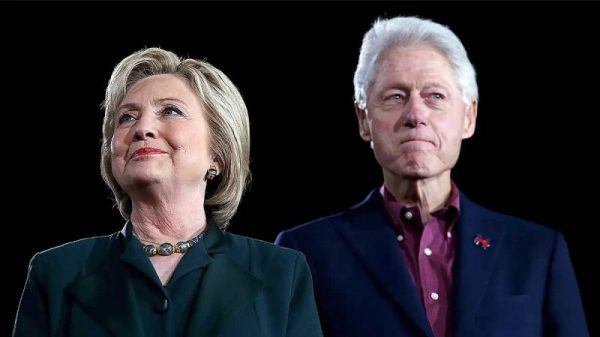Sandra Day O’Connor, the first female U.S. Supreme Court Justice will lie in repose Monday, where members of the public can pay their respects.
O’Connor’s casket will arrive shortly before 9:30 a.m. and be placed in the Great Hall at the Supreme Court. A private ceremony will take place before visitors will be able enter from 10:30 a.m. until 8 p.m., according to the court.
O’Connor, 93, died on Dec. 1 of complications connected with advanced dementia, probably Alzheimer’s disease, and a respiratory illness, according to the court. She served on the Supreme Court from her appointment by President Ronald Reagan in 1981 until her retirement in 2006.
During her time on the court, she became known for her independence among the ideologically divided justices, making her a key vote in several cases involving issues such as abortion and race-conscious university admissions.
Before being appointed, O’Connor served as assistant attorney general of Arizona, on the state senate, as a superior court judge, and on the state court of appeals. Post-retirement, O’Connor founded iCivics, which focuses on furthering civic education.
The public can line up on the sidewalk on the East Capitol Street side of the Court to enter through the visitor entrance, according to the court.
Inside the Great Hall, visitors will see a 1999 portrait of O’Connor on display, according to the court. The casket team features U.S. Supreme Court police officers, while the family of O’Connor has chosen honorary pallbearers.
An invitation-only funeral held at Washington National Cathedral is scheduled for Tuesday.
Sandra Day O’Connor, the first female U.S. Supreme Court Justice will lie in repose Monday, where members of the public can pay their respects.
O’Connor’s casket will arrive shortly before 9:30 a.m. and be placed in the Great Hall at the Supreme Court. A private ceremony will take place before visitors will be able enter from 10:30 a.m. until 8 p.m., according to the court.
O’Connor, 93, died on Dec. 1 of complications connected with advanced dementia, probably Alzheimer’s disease, and a respiratory illness, according to the court. She served on the Supreme Court from her appointment by President Ronald Reagan in 1981 until her retirement in 2006.
During her time on the court, she became known for her independence among the ideologically divided justices, making her a key vote in several cases involving issues such as abortion and race-conscious university admissions.
Before being appointed, O’Connor served as assistant attorney general of Arizona, on the state senate, as a superior court judge, and on the state court of appeals. Post-retirement, O’Connor founded iCivics, which focuses on furthering civic education.
The public can line up on the sidewalk on the East Capitol Street side of the Court to enter through the visitor entrance, according to the court.
Inside the Great Hall, visitors will see a 1999 portrait of O’Connor on display, according to the court. The casket team features U.S. Supreme Court police officers, while the family of O’Connor has chosen honorary pallbearers.
An invitation-only funeral held at Washington National Cathedral is scheduled for Tuesday.





















